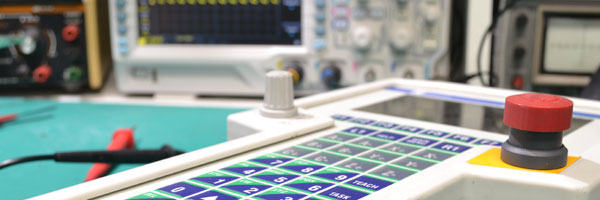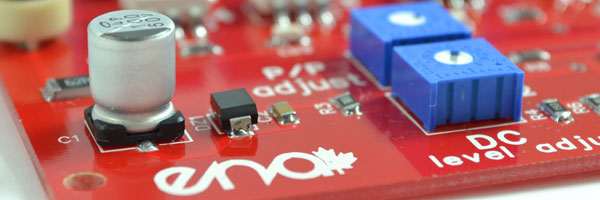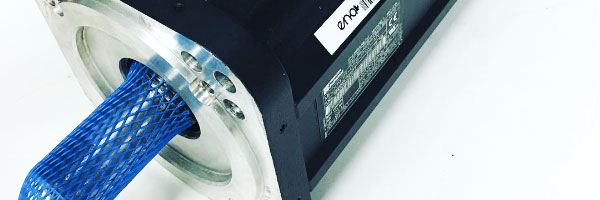Interview with Electronics meetup leader Marc Hickling

Check out the interview below with Marc Hickling (@marchickling) who is leading up the new Hamilton Electronics meetup group!
The first Hamilton Electronics meetup will take place at CoMotion on King (115 King Street East, Hamilton) on Wednesday April 19th at 7:00pm – sign-up to attend today!
Side note: Marc is looking for developers who may be interested in working with him on an open source Python project – “PCB is an open source package for semiautomated and manual PCB reverse engineering”.
Tell me about yourself.
I’ve been doing electronics since I was 10 years old when I wanted to electrify a project for a school science fair. My grandad (who was a Radio Engineer during the war) had some spare parts lying around his house which he passed on to me and taught me to solder, taught me ohms law and got me started on my first radio project. Since then I studied electronics at school and graduated university with a Bachelors in Electronic Engineering. Outside of work I love to make projects for in around the house, problem is I have so many that I never seem to get around to finishing them!
Why are you starting the Electronics meetup?
The electronics meetup came about after realizing the serious shortage of people passionate about electronics in the Hamilton + Niagara region. My boss has interviewed hundreds of applicants for jobs and there are so few people that applied who have a love for electronics. Many just see a job as a way to make some money – I see it as a passion and going to work is a pleasure.
Who will be speaking at the first meetup?
Our first speaker at the Electronics Hamilton Meetup will be Pierre Demers who is the Technical Manager for Marsh Instrumentation in Burlington. (The largest 3rd party instrumentation service company in Southern Ontario). He’s going to present on Electronic Reverse Engineering which is a little known about topic. He’ll be bringing some previous work and showing why and how reverse engineering works.

Why do people reverse engineer electronics? How does that work?
Reverse Engineering is the process of disassembling + analyzing a circuit for the purpose of generating documentation and/or re-manufacture as well as determining how it was designed and how it operates. Often the documentation even allows a customer to improve their product to surpass competitors. A big part of the process is knowing when and when it’s not allowed to do this – for instance one of the key attributes for copying/cloning PCB’s is that the product is obsolete and unsupported by the OEM.
What is the state of the electronics industry in Hamilton, and Ontario more broadly speaking?
In Hamilton there are a handful of electronics companies and particularly companies working in industrial/commercial space. To my knowledge the company I work for ENA Electronics is one of the only electronics companies in the city with most of the other electronics companies working in the consumer market. In Ontario there’s obviously the Waterloo, Kitchener and Cambridge area who are a hot bed for innovation in electronics however with the decline of stocks at Blackberry the once power house of the region is faltering and we need to innovate!

Do you see room for growth? If so, why?
There is plenty of room for growth in the Electronics space in Hamilton, there’s a ever growing software scene but very few electronics companies. The advantage of growth in the area is synergies between companies allowing for shared resources and collaboration.
If someone is “technical” in terms of knowing how to code, are there any good ways you can suggest for them to dive into the hardware and electronics side of technology?
Electronics these days need not be all about discrete components (although knowing basic electronics principles is a huge advantage), but embedded electronics bridges the software hardware gap with firmware development being critical in many electronic products. Aside from the obvious programming of Arduino + Raspberry Pi, a great way to really learn electronics is to get them connected to the real world – adding sensors, timers and output devices allows the interface of software to the physical world.
Do you see any possible collaborations between electronics professionals and others in the technology community – health tech, gaming, etc.?
Absolutely – there are so many possibilities, take health for example, how do you monitor a heartbeat without electronics? Just the software alone is one thing but the complete product is at the intersection of electronics hardware and software. Its often very easy to come up with some electronics for a project but the real skill is when an electronics professional gets involved and turn a hobby project into a proper product with noise suppression and protection, its only then that a project should be turned into a product for market.

What about a young person that’s interested in electronics, how would you recommend they get started?
One of the best ways to get involved in electronics is to join us at the electronics meetup! – shameless plug (https://www.meetup.com/Electronics-Hamilton-Meetup/) not only here will you find experience but you’ll be able to learn with people from the same starting point. Outside of the meetup I’d recommend making some kind of project – theory makes no sense without a project! One of the best circuits I know for starting electronics is the good old 555 timer circuit, it gives a real flavor of how electronics works it’s how I started learning electronics and love that integrated circuit to this day!
What are you hoping to accomplish with the meetup group going forward?’
When I was growing up and even through my degree I struggled with finding people that had a practical view of electronics with a passion for wielding a soldering iron and getting down to the board level. I’m hoping that by starting Electronics Hamilton that we can forge a community of electronic hobbyists in the Hamilton, Niagara and Burlington region with a passion for electronics, from this I hope that networking and collaboration occurs at all levels of the market place, from startups to established companies.